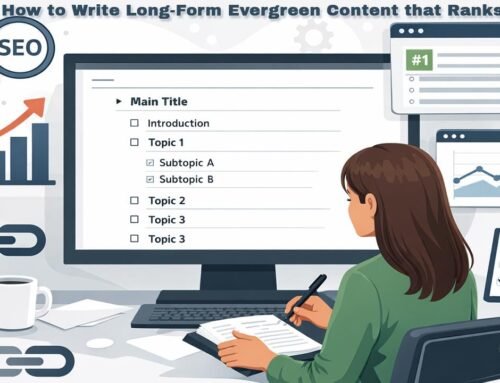Which Platform Should You Be Blogging On?
Companies that blog receive 55% more visitors than those that don’t. In the bustling online space, your choice of a blogging platform can make or break your digital presence. Whether you’re a budding entrepreneur, a seasoned marketer, or simply someone with a story to tell, the right platform is out there waiting for you.
Table of Contents
- Understanding Blogging Platforms and Your Needs
- Reviewing Top Blogging Platforms
- WordPress.org: The Versatile Giant
- Wix: Beginner’s Best Friend
- Medium: Effortless Distribution
- Tumblr: The Microblogging Maven
- LinkedIn: Professional Networking Hub
- Ghost: Influencer’s Paradise
- Drupal: Enterprise-Grade Flexibility
- Blogger: The Google-Backed Platform
- Jekyll: For the Developers
- Squarespace: Elegance and Design
- HubSpot CMS Hub: For Marketers and Developers
- Choosing the Right Platform for You
- Top 10 Frequently Asked Questions
- Conclusion: Finding Your Perfect Blogging Match
Understanding Blogging Platforms and Your Needs
The Evolution of Blogging Platforms
Gone are the days when blogging was just a hobby. Today, it’s a pivotal tool for personal branding and digital marketing. The evolution of blogging platforms mirrors this change, transforming from simple text-based interfaces to dynamic, multi-functional tools that cater to diverse needs.
Identifying Your Blogging Goals and Audience
Your platform choice should align with your audience and content goals. Different platforms cater to various audience demographics and content types. A platform that excels in visual storytelling might not be the best for in-depth technical articles.
Key Features to Consider in a Blogging Platform
The ideal platform should be user-friendly and align with your technical skills. It should offer robust customization options and powerful SEO tools to enhance your online visibility. Support and community engagement are also crucial factors to consider.
Reviewing Top Blogging Platforms
Choosing the right blogging platform is akin to picking the right tool for a job. It’s about finding the balance between functionality, ease of use, and the ability to scale as your blog grows. Let’s dive into some of the top platforms to see which might suit you best.
WordPress.org: The Versatile Giant
WordPress.org stands tall as the world’s most popular blogging platform, powering over 43% of all websites on the internet. It’s the go-to for full control over your blog, with thousands of themes and plugins. Whether you’re adding an online store or a forum, WordPress.org caters to all your needs.
Pros:
- Scalable with full design control.
- SEO-friendly with numerous plugins.
- Ideal for comprehensive content management.
Wix: Beginner’s Best Friend
Wix shines as a user-friendly option for small businesses and beginners. Its drag-and-drop editor simplifies the creation process, and its SEO assistant helps you climb up the search rankings.
Pros:
- Easy-to-use with pre-designed templates.
- Strong customization and design capabilities.
- Ideal for those prioritizing design over advanced functionality.
Medium: Effortless Distribution
Medium offers a built-in audience and is excellent for writers who focus on content over design. With its easy distribution and monetization opportunities, Medium is a solid choice for emerging writers.
Pros:
- Built-in audience of over 100 million readers.
- Simple, distraction-free blogging interface.
- Ideal for writers focusing on content rather than website design.
Tumblr: The Microblogging Maven
Tumblr is perfect for microblogging, offering a platform for pop-culture content, memes, and GIFs. It’s best for those with an informal, expressive style of writing or visual storytelling.
Pros:
- Built-in distribution tools.
- A cult audience with high engagement.
- Ideal for visual and informal content.

LinkedIn: Professional Networking Hub
LinkedIn doubles as a professional networking site and a blogging platform. It’s perfect for sharing industry insights and establishing thought leadership within your professional network.
Pros:
- Built-in professional audience.
- Good for thought leadership and industry-specific content.
- Integration with a professional profile.
Ghost: Influencer’s Paradise
Ghost is designed for influencers to monetize their content through subscriptions. With its focus on written content, it’s like Patreon but tailored for bloggers.
Pros:
- Monetization through subscriptions.
- Built-in marketing and analytics tools.
- Ideal for influencers with an existing audience.
Drupal: Enterprise-Grade Flexibility
Drupal offers a robust and flexible platform for large enterprises. It’s open-source and features a WYSIWYG editor, making it an optimal choice for complex, large-scale blogging needs.
Pros:
- High degree of customization.
- Suitable for large-scale enterprise blogs.
- Strong community support and security features.
Blogger: The Google-Backed Platform
Blogger, a Google service, is a straightforward platform ideal for beginners. Its integration with Google’s suite of tools adds to its appeal.
Pros:
- Easy to use and manage.
- Integration with Google services.
- Free with robust security features.

Jekyll: For the Developers
Jekyll offers unparalleled customization for those comfortable with coding. It stands out for its site speed and is best suited for developers.
Pros:
- Highly customizable and open source.
- Fast loading times.
- Ideal for developers and technical bloggers.
Squarespace: Elegance and Design
Squarespace is known for its beautifully designed templates, ideal for blogs that rely heavily on visuals. It’s great for creatives who want a visually appealing blog without much technical hassle.
Pros:
- Professionally designed, customizable templates.
- Simple drag-and-drop interface.
- Ideal for design-focused bloggers.
HubSpot CMS Hub: For Marketers and Developers
HubSpot CMS Hub offers a unique blend of marketing tools and blogging capabilities. It’s perfect for those who need an all-in-one solution for content and customer management.
Pros:
- Integrated CRM for better audience engagement.
- User-friendly interface with robust marketing tools.
- Ideal for marketers looking for an all-in-one platform.
Choosing the Right Platform for You
Selecting the right blogging platform is a personal decision that hinges on your specific needs, skills, and goals. Consider long-term scalability, the type of content you’ll create, and how much control you want over the design and functionality of your blog.
Top 10 Frequently Asked Questions
Conclusion
It’s crucial to choose one that not only aligns with your current needs but also has the potential to scale with your aspirations. Whether you’re a beginner dipping your toes into the world of blogging or a seasoned writer aiming to expand your digital footprint, there’s a platform tailored for you.
From the versatile expanses of WordPress.org for those craving complete control, to the sleek and artistic landscapes of Squarespace for the visually inclined, each platform offers unique strengths. Platforms like Wix and Blogger cater to beginners with their user-friendly interfaces, while LinkedIn and Medium offer unique networking and audience-building advantages.
Remember, the best platform is one that feels right for your style, goals, and audience. It’s not just about where you start your blogging journey, but also about where you can go from there. Choose wisely, and let your blogging platform be the foundation upon which your unique and compelling digital story unfolds.









Leave A Comment